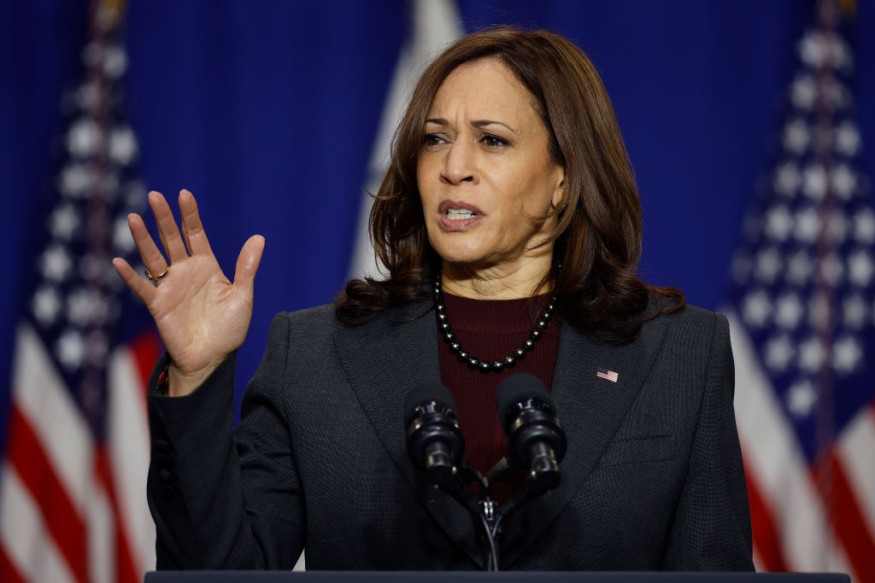Vice Pres. Kamala Harris Announces $1.2 Billion Worth of Private Investments in Central America as Part of Her Response to Migration Root Causes

Vice President Kamala Harris has announced that seven companies have committed private investments in countries in Central America, such as Guatemala, Honduras, and El Salvador.
The private investments in Central America are worth $1.2 billion as the vice president addresses the migration root causes from the region to the U.S.-Mexico border, according to an Axios report.
In May, the administration announced the first round of private investments worth $750 million.
Harris will be discussing the task with chief executives from companies such as Microsoft, PepsiCo Latin America, and Nespresso.
U.S. President Joe Biden tapped Harris in March to lead U.S. efforts with Mexico and the Northern Triangle countries to lower migration from the region.
READ NEXT : U.S. Pres. Joe Biden, Vice Pres. Kamala Harris Mocked in Billboard With Text "Dumb and Dumber"
Harris' Response to Migration Root Causes
According to a Reuters report, a senior White House official said that the effort has been core to how the vice president has thought about advancing her work in the region since the beginning.
Another White House official said the vice president's efforts have helped realign U.S. foreign aid money while gathering key stakeholders together.
The official said that Harris had also gathered support from Congress and foreign partners, and managed to secure more resources from the United Nations.
PepsiCo plans to invest at least $190 million in northern Central America through 2025, including improvements to existing manufacturing routes.
The company will also be expanding its distribution routes.
Meanwhile, Cargill will invest an additional $150 million over the next five years to help farmers and create jobs in the Central American countries.
For Parkdale Mills' part, they will build a new spinning facility in Honduras and invest $150 million.
Nespresso will also be supporting coffee-growing in Honduras and El Salvador, while Microsoft plans to connect millions of people to the Internet.
Mastercard will be committing a $100 million funding to the region to promote digital payments and e-commerce, according to a Local 21 News report.
Migration from Central America
A report released in November found that majority of Central Americans who want to migrate internationally are motivated by economic factors.
Ninety-two percent surveyed from El Salvador, Guatemala, and Honduras expressed a desire to migrate internationally cited unemployment, lack of money for food and basic necessities, and the need for a better job as the reasons for migrating, according to a CNBC report.
The lead researcher of the report, Ariel Ruiz, said that economic factors are not new. However, what was different with the survey was the number of people citing those factors.
Migration from Central America has significantly increased over the past three decades by 137 percent between 1990 and 2020.
Data from the United Nations noted that around 16.2 million from the region resided in a country other than their home country in 2020.
Ruiz said that the pandemic's effect on the economic conditions in the region can partly explain why many of those who want to migrate internationally mentioned economic reasons.
Ruiz said that the pandemic made making a decent livelihood in Central America so much more difficult.
This article is owned by Latin Post.
Written by: Mary Webber
WATCH: Vice President Harris Convenes with CEOs to Discuss Private Sector Investment in Central America - from The White House
Subscribe to Latin Post!
Sign up for our free newsletter for the Latest coverage!
© 2026 Latin Post. All rights reserved. Do not reproduce without permission.















